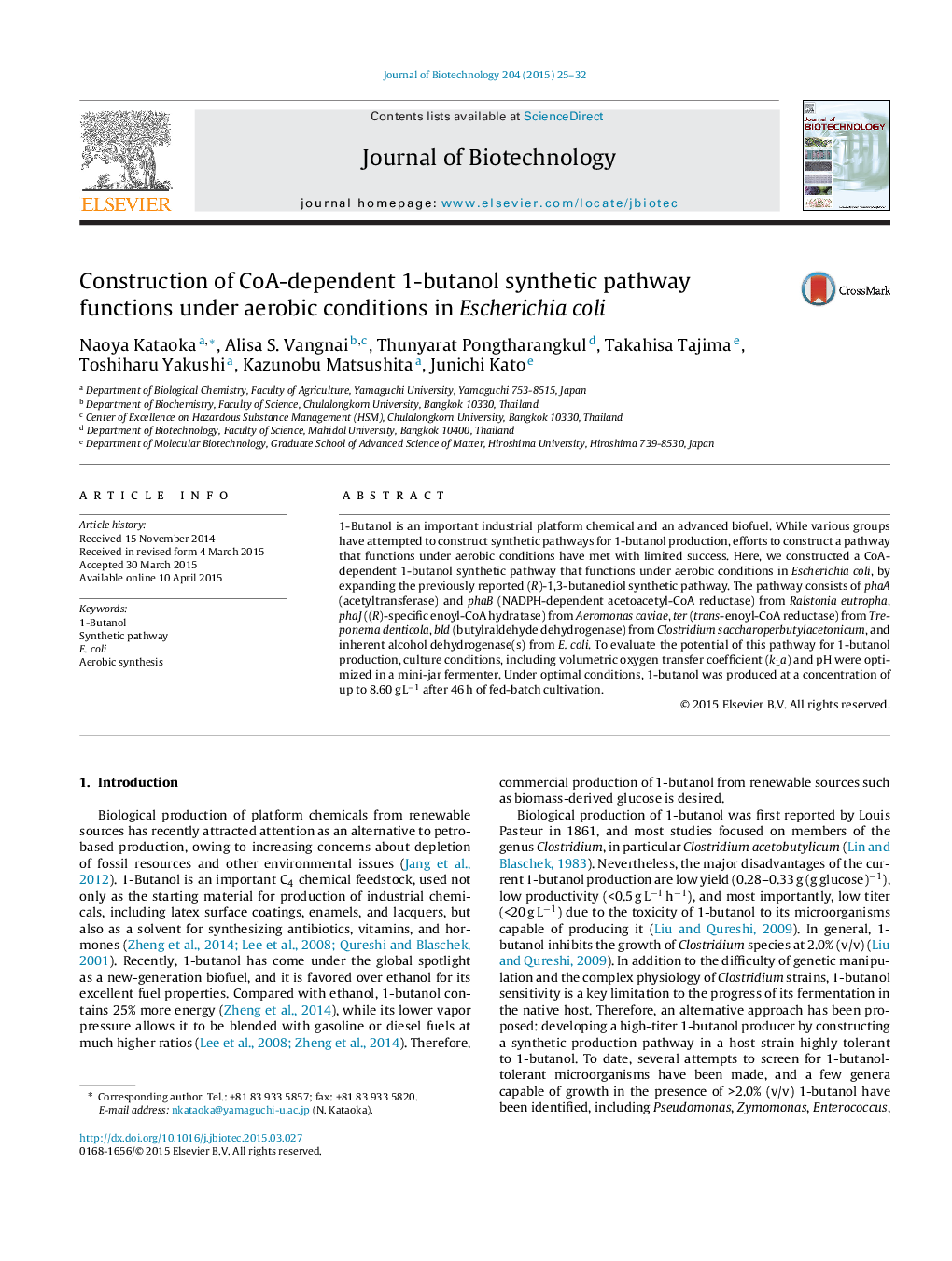| Article ID | Journal | Published Year | Pages | File Type |
|---|---|---|---|---|
| 22803 | Journal of Biotechnology | 2015 | 8 Pages |
•We design a novel 1-butanol synthetic pathway functions under aerobic conditions.•Engineered E. coli aerobically produces 4.07 g L−1 1-butanol in shaking flask.•Engineered E. coli aerobically produces 8.60 g L−1 1-butanol in a bioreactor.
1-Butanol is an important industrial platform chemical and an advanced biofuel. While various groups have attempted to construct synthetic pathways for 1-butanol production, efforts to construct a pathway that functions under aerobic conditions have met with limited success. Here, we constructed a CoA-dependent 1-butanol synthetic pathway that functions under aerobic conditions in Escherichia coli, by expanding the previously reported (R)-1,3-butanediol synthetic pathway. The pathway consists of phaA (acetyltransferase) and phaB (NADPH-dependent acetoacetyl-CoA reductase) from Ralstonia eutropha, phaJ ((R)-specific enoyl-CoA hydratase) from Aeromonas caviae, ter (trans-enoyl-CoA reductase) from Treponema denticola, bld (butylraldehyde dehydrogenase) from Clostridium saccharoperbutylacetonicum, and inherent alcohol dehydrogenase(s) from E. coli. To evaluate the potential of this pathway for 1-butanol production, culture conditions, including volumetric oxygen transfer coefficient (kLa) and pH were optimized in a mini-jar fermenter. Under optimal conditions, 1-butanol was produced at a concentration of up to 8.60 g L−1 after 46 h of fed-batch cultivation.
